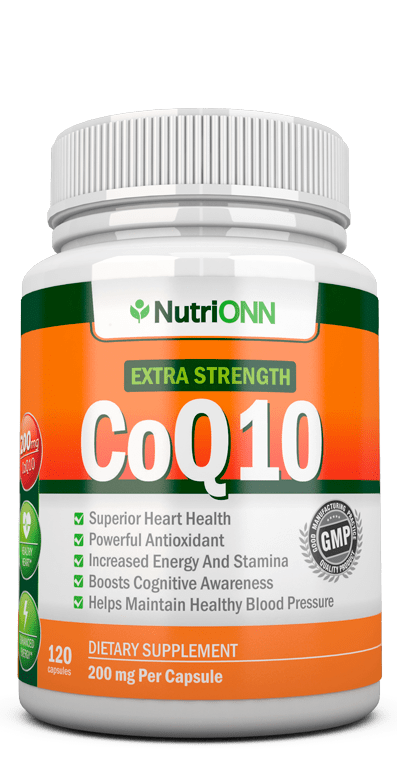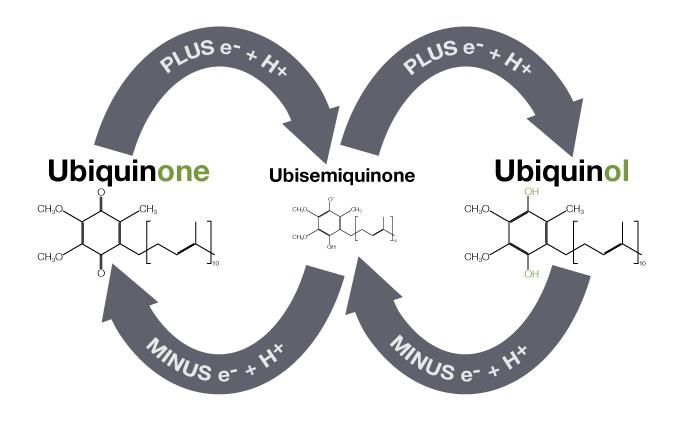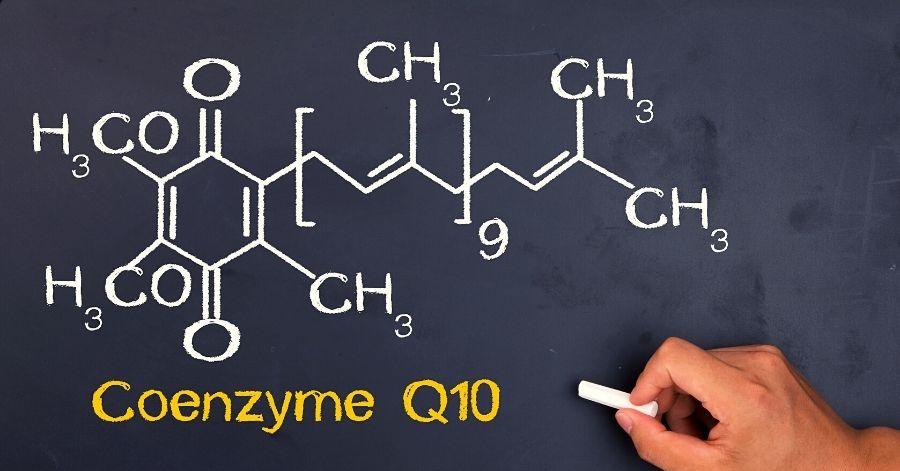
Coenzyme 10 (or CoQ10) is available in two different forms – Ubiquinol and Ubiquinone. The most common questions people ask are – What is the difference? Is one better than the other? Which one should I take?
The usually told difference between Ubiquinol and Ubiquinone is that Ubiquinol should be absorbed better by the body. However, this is not necessarily true.
First, what is CoQ10?
CoQ10 is fat-soluble nutrient that is found in every cell of our bodies. It is most concentrated in organs that need the most energy, such as heart, liver, kidneys and muscles. CoQ10 is a necessary part for producing energy in the cell.
In the body, CoQ10 can exist in two different forms – ubiquinone or ubiquinol.
What is the difference?
These two compounds are one natural process apart – oxidizing. They can both exist in the body – ubiquinone (the oxidized version) and ubiquinol (the reduced version). When oxidized CoQ10 (ubiquinone) is used by the body, it transforms and becomes ubiquinol. In the same way, reduced CoQ10 (ubiquinol) becomes ubiquinone when it carries out its purpose in your body.

How does it work?
Every cell has their powerhouses called mitochondria, the place where energy production takes place. This is where you find CoQ10. In the process of producing energy, electrons are being exchanged. For this exchange, there are electron acceptors and donors needed – in chemistry everything has to work in balance.
CoQ10 acts as electron acceptor or donor in the chain of reaction that leads to energy production.
When oxidized CoQ10 (ubiquinone) accepts an electron from another molecule in the chain, it becomes reduced (ubiquinol) and when reduced CoQ10 (ubiquinol) donates an electron, it becomes oxidized (ubiquinone). Maintaining this balance is how your body most benefits from CoQ10.
In conclusion – It does not matter in what form of CoQ10 you take as a supplement – the body is able to convert the consumed form to the other form as needed.
To put it simply, if you take a reduced CoQ10 supplement (ubiquinol), the body can convert it to the oxidized CoQ10 (ubiquinone) and vice versa. This conversion takes place to maintain a state of balance between reduced CoQ10 (ubiquinol) and oxidized CoQ10 (ubiquinone). Your body knows how to use both forms when needed.
There may be certain situations when your body is unable to convert ubiquinone into ubiquinol (diagnosed by a doctor who will make a recommendation if that should be the case), but other than that your body is able to use both.
It all comes down to the price and quality of the product. Which we can assure you is absolute best here at NutriONN. You can read more about our CoQ10 supplement on our CoQ10 product page.





0 Comments